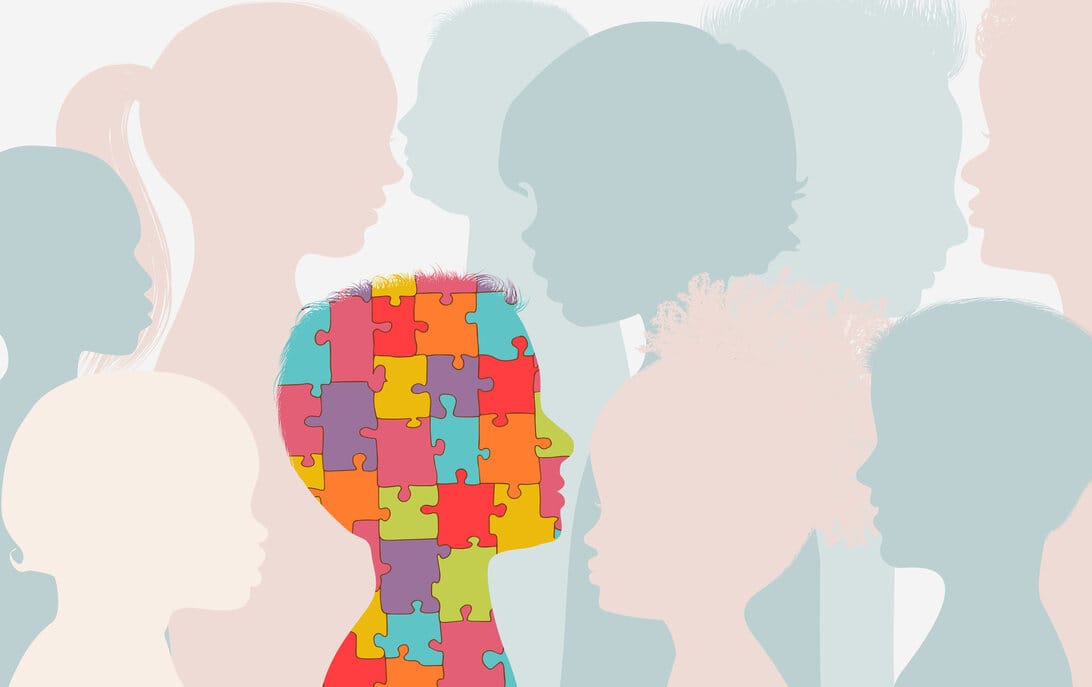
Working with families and children who have participated in applied behaviour analysis-based therapy programs in Australia is immensely rewarding.
Through our ongoing research exploring the lived experiences of families who have participated in ABA, we’ve heard stories about children improving their confidence, communicating with families and loved ones, learning new skills, and excelling at school.
“My son has become more confident and less anxious. He has improved skills, including interpersonal, patience and practical skills. His social skills have improved. He enjoys his sessions. The difference in his confidence and behaviour is immense since he started ABA, and this has had a significant positive impact on our whole family.”
So it was with a mixture of both shock and disappointment to read a recent article in The Australian that likened ABA to gay conversion therapy, an appalling and illegal practice our field has expressly condemned.
As people who identify as neurodivergent or queer, we find this deeply troubling.
Read more: The natural science behind applied behaviour analysis
We’re a team of academics from Monash’s Faculty of Education with a strong interest in supporting children with disabilities (including autistic children) to thrive at home, school, and within their communities.
We agree that more needs to be done to support autistic children at school, and procedures such as punishment that includes reprimanding, excluding, or otherwise sanctioning autistic students for not sitting still, not looking people in the eyes, or simply being autistic, are unacceptable.
But we also believe all autistic children can succeed socially and academically at school, while being their authentic autistic selves, when provided with access to high-quality academic instruction, and individualised classroom accommodations and modifications.
Suggesting ABA is gay conversion therapy for autistic people is harmful and degrading to both the autistic community and the LBGTIQA+ community, and the many families who’ve benefited from ABA-based therapy programs.
Such statements may serve to further separate Australian families and their loved ones from potentially effective therapies, and may result in families being fearful of therapies they’ve chosen to pursue and from which they’ve benefited.
“I believe ABA from day one made improvements in both my son's life and for our family. He had severe speech delay, and now this has improved to moderate delay. However, his ability to communicate is excellent. This improvement in his communication meant most of his challenging behaviours decreased dramatically.”
What is applied behaviour analysis?
ABA isn’t a therapy, per se, but an evidence-informed and practical framework for delivering a range of educational and behaviour support strategies that are individualised to the strengths and needs of the person.
It’s based on learning and social-learning theory.
Contemporary applications of ABA, such as positive behaviour support, also draw on prevention science, implementation science, and the social and human rights models of disability.
When used as a therapy approach, the strategies and supports are personalised and designed in collaboration with autistic people and their families.
In addition, they’re evidence-informed – that is, educators and practitioners who use the ABA framework must be well-versed in the process of evidence-based practice, and must be able to draw on published research, their own clinical judgement and expertise, and the values, preferences, strengths, goals and needs of the person they’re supporting when designing an educational or behaviour support program.

The goals of ABA-based therapy programs are commonplace – to cultivate positive relationships and participate in joyful life experiences.
Such strategies should ultimately enhance the quality of life for the person, and minimise or prevent the use of any sort of restrictive or exclusionary practices.
And the response from parents and families tells us this is often the outcome:
“Our daughter, when she first started receiving therapy, had violent outbursts, as she could not communicate with us. She is verbal, but she had a fear of failure and had also been diagnosed with a general anxiety disorder. Our ABA therapy team were non-judgmental, understanding, and were very quick to put a program in place to suit her needs. With help from ABA therapy, our daughter is excelling at school, and has had progress at home with us [her parents] as well. ABA has been a godsend for our daughter.”
Strongly positive survey feedback
We recently conducted an Australian survey with professionals who design and deliver ABA-based therapy programs, and families who have received ABA-based therapy programs, to identify and describe the professional practice of ABA in Australia.
The results suggest the professional practice of ABA in Australia is person-centred, strengths-based, and focused on building skills and supporting the meaningful inclusion and participation of individuals with disabilities (including autism), and their families.
Of the families who responded:
- 94% felt the ABA-based therapy program was individualised to reflect their child’s goals and needs
- 93% felt the therapy program was individualised to reflect their child’s strengths
- 93% felt the methods (teaching and behaviour support strategies) used within their child’s therapy program were acceptable
- 91% felt their child enjoyed participating in their ABA program
- 94% of families felt their child was making positive gains as a result of participating in their ABA-based therapy program
- 92% felt the outcomes their child had achieved as a result of participating in their therapy program were meaningful
- 86% felt that their child would have more opportunities for social inclusion as a result of participating in their therapy program.
Applied behaviour analysis is a distinct profession with unique graduate coursework and supervised fieldwork requirements, and professional and ethical standards. However, there have been challenges in advancing the field of ABA due to it being unregulated in Australia, and this has led to a lack of understanding about what ABA is, and how it should be practised.
This means there are no regulations restricting people referring to themselves as ABA “therapists” or “practitioners”. Therefore, it’s important to ensure behaviour analysts are appropriately credentialed, and are working within their scope of practice and competence.
The development and application of a professional regulation of ABA in Australia is currently one of our priorities, as it would provide many benefits and safeguards.
UNCRC goals are achievable
The United Nation Convention for the Rights of the Child states that all children, including children with a disability, have “the right to live a full and decent life with dignity and, as far as possible, independence, and to play an active part in the community” (UNCRC, 1990).
We believe ABA-based therapy programs can help achieve the goals outlined in the UNCRC, and as such, are aligned to a human rights-based model of support.
Contemporary ABA-based therapy programs in Australia respect and embrace authentic autistic identity while also supporting the child to learn skills, participate in enjoyable life activities, and experience enhanced quality of life.
Such programs emphasise teaching autistic children to navigate the social world around them and cope with life’s inevitable disappointments, while also supporting parents, teachers, and other adults around the child to create a more enriched living and learning environment that meets the sensory, social, and educational needs of the child.
All autistic people and their families should have a choice in how they wish to be supported, and a voice in creating those supports.





